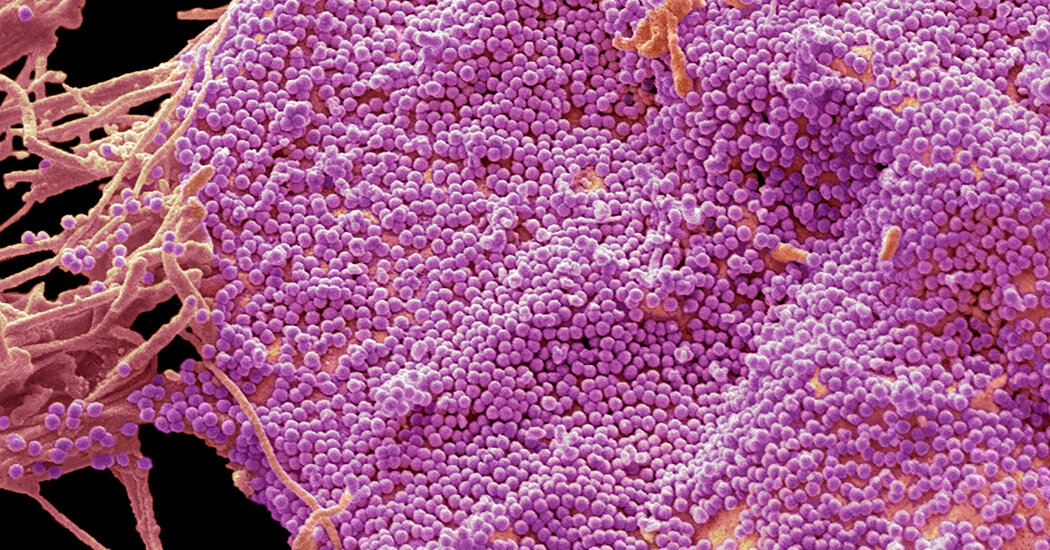After promising results in monkeys, scientists plan to test the new treatment in a few people with H.I.V.
Scientists have developed a new weapon against H.I.V.: a molecular mimic that invades a cell and steals essential proteins from the virus.
A study published in Science on Thursday reported that this viral thief prevented H.I.V. from multiplying inside of monkeys.
The new therapeutic approach will soon be tested in people, the scientists said. Four or five volunteers with H.I.V. will receive a single injection of the engineered virus. “This is imminent,” said Leor Weinberger, a virologist at the University of California, San Francisco, who led the new study.
In a normal H.I.V. infection, the virus slips into an immune cell and hijacks its host’s DNA to make copies of itself, which then burst out of the cell. After a large number of cells have been infected, the immune system collapses, causing AIDS.
For decades, scientists have developed drugs for H.I.V. that attack the virus itself. Some drugs, for example, prevent a protein called a protease from activating H.I.V. And a drug called lenacapavir blocks the proteins that form the virus’s shell. Last week, researchers reported that they could keep the virus at low levels by injecting lenacapavir into volunteers once every six months.
Twenty years ago, Dr. Weinberger set out to try an entirely different approach: creating an impostor virus that interfered with H.I.V.’s normal life cycle.
